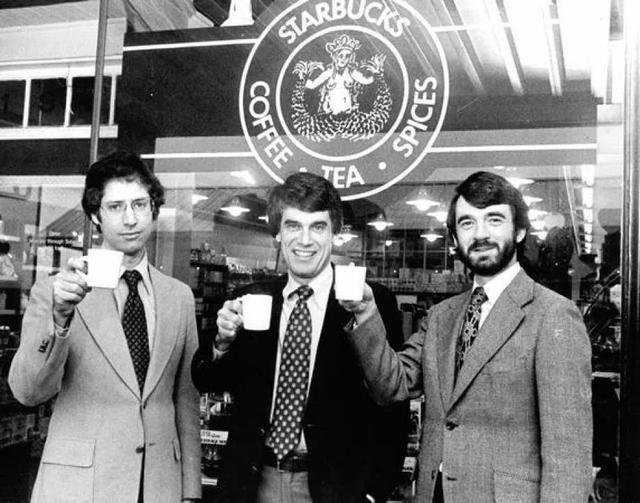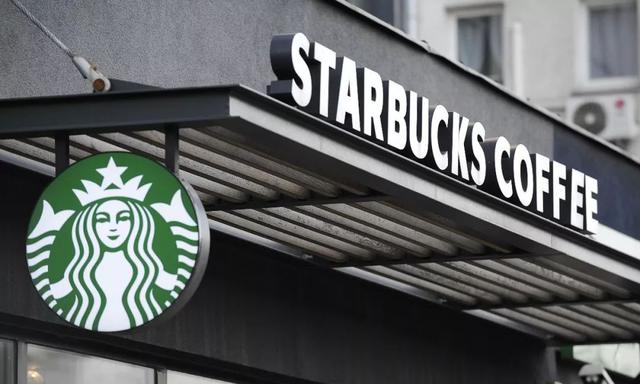Starbucks brand history-the founder of boutique coffee, Starbucks' founding story and Starbucks chain.
As the bearer of the coffee chain, Starbucks is known to everyone. Starbucks builds the brand, with special emphasis on its cultural taste. Therefore, Starbucks coffee consumption is to a large extent a cultural level of consumption, cultural communication needs is through the coffee shop to create an environmental culture can infect customers, let customers enjoy and form a good interactive experience.
So how did Starbucks first come into being? In 1966, boutique coffee came to the United States. Alfred Peet, the son of a Dutch coffee roaster, owes coffee roasting to North American customers. Born in the Netherlands, he travels the world as a taster and buyer for various coffee and tea companies. When his career finally brought him to the United States, he found that American coffee was of poor quality, so he started baking his own coffee-soon after opening Peet's Coffee&Tea in Brooklyn, California. He aroused his desire for deep-roasted coffee between ardent scholars and discerning coffee vultures, who were eager to taste more flavor than just a light cup of coffee sold on the market at the time. He also tutored Jerry Baldwin, Zev Siegl and Gordon Bowker in his own baking style. The three young men later became the founders of Starbucks, bringing deep baking to Seattle. In 1983, Howard Schultz Howard Schultz visited Italy and was inspired by the country's espresso bar and brought espresso technology back to the United States. Starbucks quickly promoted its brand, giving it more than 20,000 stores in 63 countries. At the same time, Starbucks will incorporate the concept of "third space" into its corporate philosophy, and become one of the places that people must go for leisure, work and entertainment.

Starbucks first opened its first store in mainland China in January 1999 at the China International Trade Center in Beijing. For Starbucks, China has become the fastest growing and largest overseas market for Starbucks.
Starbucks' success can be attributed to two factors:
Starbucks' rapid growth and market dominance has been achieved through aggressive expansion and saturation of the local market-Starbucks will choose a location where there is already a successful coffee shop and open stores near the cafe. Eventually, the original "mom-and-pop shop" will be driven away, and Starbucks will open stores "on every street". When Starbucks decided to enter the UK market, it bought the UK-based Seattle coffee company Seattle Coffee Company and renamed all its stores Starbucks, providing a solid infrastructure for Starbucks'UK business while eliminating a competitor. In addition, Starbucks has created a strong brand by focusing on providing a comfortable store atmosphere, as their mission states: "create a warm belonging culture where everyone is welcome".

Starbucks was one of the first companies to offer free WiFi in its stores when there was no WiFi service or only a paid WiFi in most places. From freelancers to businessmen, from students to people who want to sit in comfortable cafes, Starbucks has become a place for leisure, not just a place to drink coffee. This encourages people to stay longer in stores, which in turn increases the number of purchases.
However, Starbucks' expansion was not always plain sailing and suffered two major failures:
In 2001, Starbucks opened its first store in Israel and eventually expanded to six stores in Tel Aviv. Starbucks has not stopped its usual practice of offering high-priced coffee, but charges more for the atmosphere than the quality of the coffee itself.
Before, this seemed to work everywhere else. However, the local Israeli market pays more attention to price and quality. Israelis are not willing to pay a high price for coffee that is not as good as local cafes. By 2003, Starbucks admitted it had failed in Israel and closed all its stores in Israel. This is very similar to Starbucks' failure in Australia, where it opened its first store in July 2000. By 2008, the company had expanded to 84 stores, but Starbucks closed 60 of them because of a lack of public interest. Similar to the situation in Israel, Australia already has a vibrant coffee culture, and Starbucks has not adapted to local tastes.
Important Notice :
前街咖啡 FrontStreet Coffee has moved to new addredd:
FrontStreet Coffee Address: 315,Donghua East Road,GuangZhou
Tel:020 38364473
- Prev

Introduction to the characteristics of fermentation treatment of coffee bean wine barrel evaluation of coffee bean flavor in Honduran sherry whisky barrel
Maybe when you drink coffee, you can smell and drink the flavor of fermented wine in the coffee, but this is only the similar flavor produced by the fermentation of coffee beans. If you drink a cup of coffee with a strong wine flavor, most of the coffee is fermented in a barrel, while in the front street coffee, there are a few.
- Next

How to solve the shortage of Brazilian coffee export containers? Coffee companies spend billions to fly coffee beans
Up to now, the global container shipping crisis has not been effectively alleviated. Shipping vessels and containers are mainly concentrated in the United States, Asia and Europe, and are the main export ports. According to a report compiled by the South American Overseas Chinese News Network, one of Brazil's coffee producers had to complain because of the insufficient number of containers in Brazilian ports.
Related
- Unexpected! Ruixing Telunsu lattes use a smoothie machine to foam milk?!
- % Arabia's first store in Henan opens into the village?! Netizen: Thought it was P's
- Does an authentic standard mocha coffee recipe use chocolate sauce or powder? Mocha Latte/Dirty Coffee/Salty Mocha Coffee Recipe Share!
- What is the difference between Vietnam egg coffee and Norway egg coffee? Hand-brewed single product coffee filter paper filter cloth filter flat solution!
- What is the difference between sun-cured and honey-treated coffee? What are the differences in the flavor characteristics of sun-honey coffee?
- How to make Italian latte! How much milk does a standard latte use/what should the ratio of coffee to milk be?
- How to make butter American/butter latte/butter Dirty coffee? Is hand-brewed coffee good with butter?
- Is Dirty the cold version of Australian White? What is the difference between dirty coffee/decent coffee and Australian white espresso?
- Relationship between brewing time and coffee extraction parameters How to make the brewing time fall to 2 minutes?
- Got entangled?! Lucky opens a new store, Mixue Ice City, and pursues it as a neighbor!

